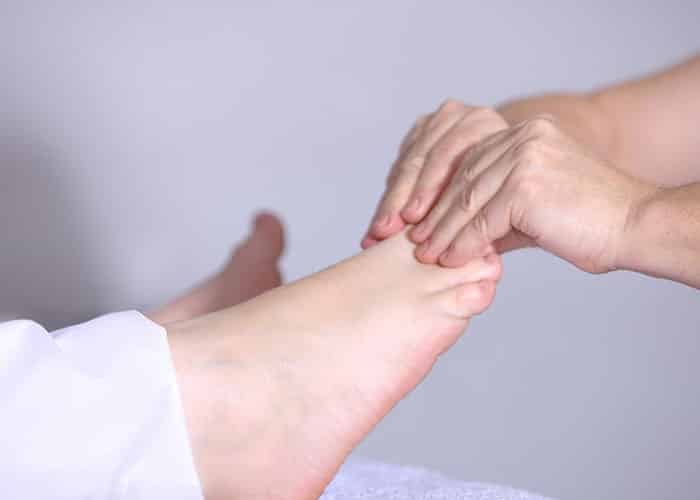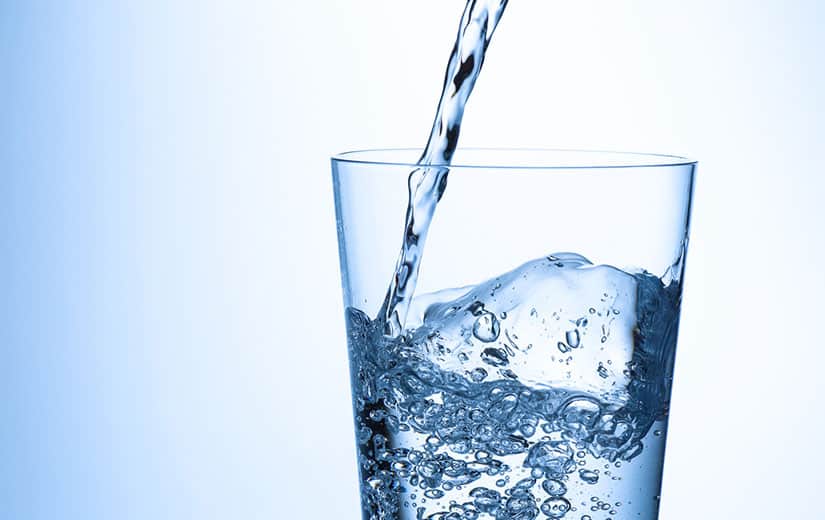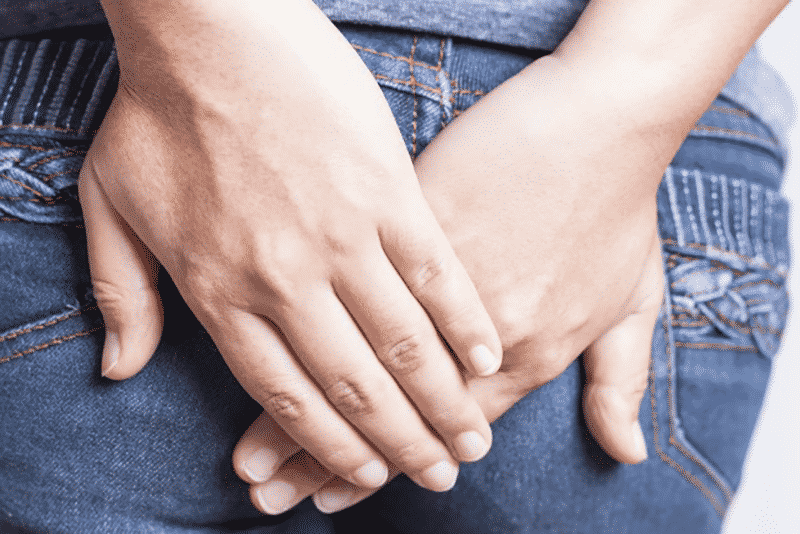Sore foot, heel? And if it was a plantar aponeurosis? Do not panic, it is not a disease strictly speaking, but a small trauma to the foot. Moreover, before resorting to drugs and surgery, know that there are natural remedies. Discover all our tips and solutions to soothe pain related to aponeurosis. And follow our advice to prevent the risk of trauma and take care of your feet!
Summary
Plantar fasciitis: What is that ?
Plantar aponeurosis is not an inflammation but a micro-trauma of the plantar aponeurosis. This fibrous membrane is located under the foot, and extends from the heel to the base of the toes. By absorbing shocks during support on the ground, the aponeurosis acts as a supporting role for the foot. Not very elastic, it also lacks resistance to daily or unusual stresses.
The term plantar fasciitis designates the acute or chronic elongation of the membrane. More rarely, it is his tear. And we must also distinguish this trauma from plantar fasciitis which is the result of inflammation of the aponeurosis. Generally, the first people concerned are athletes and the elderly.
The causes
To determine the cause, we must first distinguish between the three types of aponeurosis:
- the first is related to damage to the back of the plantar aponeurosis. It results from localized pain under the heel bone;
- then, the aponeurosis related to the attack of the body of the aponeurosis generates a pain located under the foot;
- finally, the rupture of the plantar aponeurosis occurs suddenly following a violent effort (impulse, jump), whether it is healthy or already fragile.
On the other hand, most often fasciitis is caused by a shortening or retraction of the calf muscles. And the x-ray, optional, can also reveal the presence of a heel spur, also called Lenoir’s spur. This growth under the heel bone testifies to the chronic overwork of the plantar aponeurosis.
As far as risk factors are concerned, there are many:
- mechanical imbalance of the foot (hollow or flat foot);
- thin calf muscles;
- rigid Achilles tendon;
- wearing shoes with poor support;
- sudden weight gain (pregnancy, obesity);
- increased walking;
- poor foot posture (runner, dancer, etc.);
- prolonged standing;
- old age;
- inflammatory disease such as arthritis.
Symptoms
Several pains, characteristic of plantar aponeurosis, should alert:
- pain at the base of the heel, especially in the morning on waking when the person stands up;
- pain located on the side of the foot when walking;
- pain during prolonged standing or after a period of rest;
- sharp heel pain with local swelling. This may result from a tear;
- pinching;
- feeling of warmth in the heel;
- pricking sensation under the heel, like a needle stuck in the skin;
- difficulty going up or down stairs.
Natural treatments for plantar fasciitis
The right things to do
In case of plantar aponeurosis, it is necessary to adopt the right actions to reduce and calm the pain:
- shorten one’s steps;
- reduce activities that cause pain;
- do not walk barefoot;
- use shoes adapted to your foot, not too tight or with a heel that is too high.
Massage and stretching
You can massage your feet to soothe plantar aponeurosis. Use a ball that you roll under the soles of your feet. Stop the massage as soon as pain appears.
The other exercise is to stretch the feet using a towel. Finally, also place a handkerchief on the floor and try to grab it with your toes.
Cold
Apply ice to the affected area to reduce pain. Caution: never apply an ice pack directly to the skin (risk of burns). Cover the ice in a clean cloth before placing it on the foot.
Cryotherapy (icing of the plantar aponeurosis) is also recommended in the event of trauma.
Bandage
Use elastic bandages to support the arch of your foot.
Heel pads and plantar orthoses
There are shock-absorbing heel pads to slip into shoes to relieve pain related to plantar aponeurosis.
Note that you also have the option of wearing a foot orthosis. This device helps reduce aponeurotic tension and signs of trauma. Consult a podiatrist in addition to your doctor.
Physiotherapy
Through stretching exercises, it is possible to reduce the intensity of the pain. The physiotherapist can use shock waves to reduce the trauma.
aromatherapy
In the essential oils department, several are recommended to overcome a micro-trauma to the foot. Starting with Gaulthérie oil. These analgesic and anti-inflammatory properties will make your foot pain more bearable.
As for the essential oil of peppermint, it will help you relieve the symptoms of foot conditions. It is also a popular natural remedy for plantar fasciitis.
Then, trust the essential oil of lemongrass which helps fight pain and inflammation in the feet. Finally, birch oil is a good ally for getting rid of a foot condition.
Use these essential oils in massage with a few drops of your choice. Be careful to exercise delicate movements so as not to aggravate the pain and swelling. You can also use foot baths to relax and enjoy the virtues of essential oils. Prepare a hot bath and mix a few drops of HE of Wintergreen, peppermint, lemongrass or birch. Leave to soak for fifteen minutes.
Epsom salt
To relieve pain due to plantar aponeurosis, practice foot baths with Epsom salt. It is an excellent natural remedy to calm pain and fight affection. Mix a small amount of salt in the hot bath. You can also dilute a few drops of EO in water, in combination with salt.
More natural treatments:
- 7 natural treatments for warts
- 7 Natural Acne Treatments
- 7 Natural Psoriasis Treatments
- 7 Natural Lice Treatments
- 3 natural treatments for scabies
- 11 Natural Constipation Treatments
- 9 natural treatments for angina
- 13 Natural Asthma Treatments
- 7 natural treatments for anemia
- 8 natural treatments for anxiety
- 9 treatments for heartburn
- 11 natural treatments for canker sores
- natural treatments for paronychia
- 7 natural treatments for cystitis
- 11 Natural Gout Treatments
- 13 natural treatments for osteoarthritis of the knee
- 7 Natural Sinusitis Treatments
- 6 natural treatments for osteoporosis
- 10 natural treatments for cold sores
- natural treatments for urinary tract infection
- 9 natural treatments to reduce the effects of menopause
- 9 Natural Osteoarthritis Treatments
- 9 natural treatments for tinnitus
- 11 natural treatments for hemorrhoids
- natural treatments for bronchitis
- natural treatments for seborrheic dermatitis
- Helicobacter pylori: natural treatments
- Natural treatments for bloating
- Natural Burn Treatments
- Natural treatments for balanitis
- Natural treatments for conjunctivitis
- Natural treatments for hot flashes
- Natural treatments for hypertension
- Natural Inner Ear Crystal Treatments
- Treatments for hiatal hernia
- Natural treatments for Morton’s neuroma
- Natural treatments for itchy vulva
- Natural treatments for a heel spur




